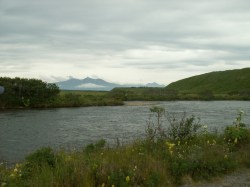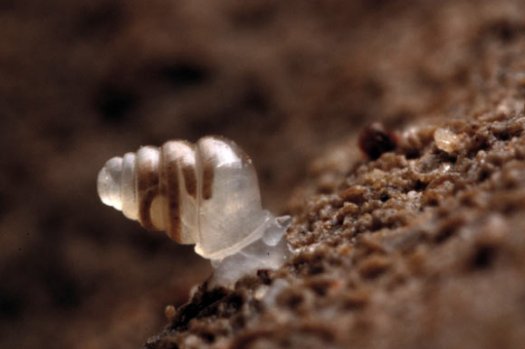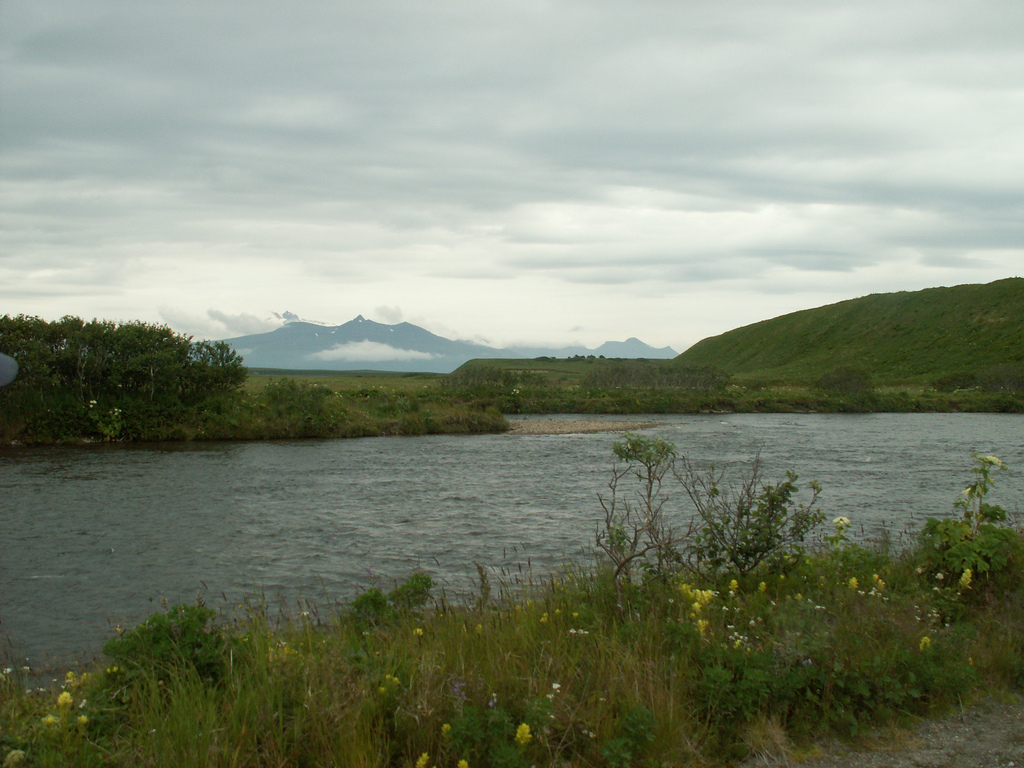
Friends of Bristol BayA waterway that leads to Bristol Bay.
The future of the controversial Pebble Mine, which could excavate 186 square miles [PDF] of pristine Alaskan terrain, is now very much up in the air.
The proposed mine near Bristol Bay would dig up an estimated $300 billion worth of gold, copper, and molybdenum. But it would threaten another treasure: one of the world’s biggest salmon runs, which provides half the world’s supply of sockeye.
One of two global mining giants involved in the project announced Monday that it was walking away from what it regards as a high-risk venture. U.K.-based Anglo American had spent $541 million getting the 50/50 joint-venture project nearly to the point where it could begin applying for state and federal permits. By quitting now, it avoids spending nearly $1 billion more it had agreed to sink into development of the mine. Anglo told shareholders it would write $300 million of intangible assets off of its ledger at the end of the year — the price of walking away from a deal that it once thought would lead to bountiful riches.
It’s too early to say what this will mean for the fate of the project, but environmentalists rejoiced in the news while investors choked on it.
“Anglo American’s decision to pull out of the potentially disastrous Pebble Mine highlights the incredible risks the project brings to Bristol Bay’s local communities and fisheries,” World Wildlife Fund Arctic campaigner Dave Aplin said. “When a company is willing to accept a $300 million charge to walk away from a project, it gives you a sense of just how bad of an idea the proposed Pebble Mine really is.”
Opponents of the mine worry that it would wreck an ecologically rich and remarkable landscape. Local fishermen are particularly concerned, fearing the project could destroy their livelihoods — and the livelihoods of the processors and traders that rely on them [PDF].
The timing of the announcement was interesting: It came just weeks after EPA Administrator Gina McCarthy visited the site, which environmentalists and fishermen are lobbying her to protect using provisions of the Clean Water Act. Results of a recent poll indicated that more than 60 percent of Alaskans would vote in a favor of a proposed 2014 ballot initiative to block the mine.
The announcement also coincides with falling worldwide commodity prices.
In Monday’s announcement, Anglo American said it wants to reduce financial risks and reduce spending on “such projects during the pre-approval phases.”
Northern Dynasty Minerals, a publicly traded subsidiary of Canadian mining company Hunter Dickinson, is now left all alone in trying to push through with the mine. Its chief executive put an optimistic spin on the news during a call Monday with reporters. “We will now be back in possession of 100 percent of the Pebble Project and the beneficiary of something north of $540 million worth of expenditures by Anglo over the past five years,” Ron Thiessen said. He insisted the project would move forward, but acknowledged that he really doesn’t know what lies ahead. The company’s board of directors has not yet met to discuss next steps.
Northern Dynasty might be trying to sound upbeat, but investors were having none of it. The company doesn’t have enough money to develop the mine alone. Shares in the company were being traded at $1.50 on Monday — an all-time low, well below the $5 at which its shares were trading a year ago.
If the project is called off, what’s bad news for the mining company’s investors would prove to be wonderful news for the environment.



